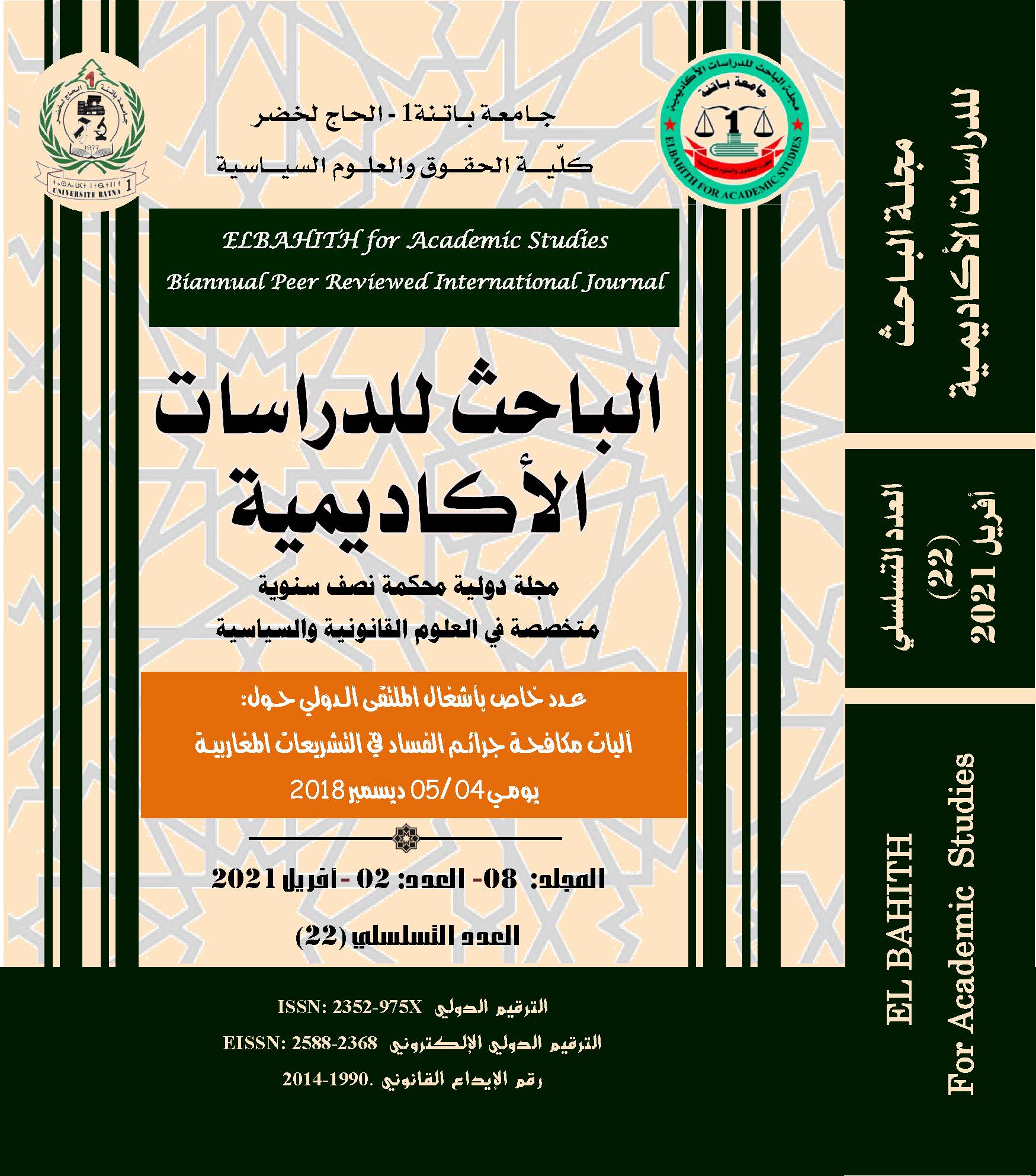دور المجتمع المدني في الوقاية ومكافحة الفساد: الجزائر نموذجا
DOI:
https://doi.org/10.59791/efas.v8i2.1146الكلمات المفتاحية:
المجتمع المدني، الحكم الراشد، الفساد، الوقاية، المكافحةالملخص
الفساد ظاهرة خطيرة تهدد الدولة وأمنها، سريع الإنتشار، له آثاره السلبية على الصعيدين الداخلي والخارجي، تتعدد وتختلف صوره ومظاهرة وأنواعها، ولمواجهة هذه الظاهرة لا بد من تضافر الجهود الدولية والوطنية من أجل ذلك، ويتجسد ذلك بالإتفاق على وضع إستراتيجيات تشريعية ومؤسساتية فعالة، ومن بين هذه الإستراتيجيات تفعيل أدوار مؤسسات المجتمع المدني كفاعل من فواعل الحكم الراشد، هذه المؤسسات التطوعية الحرة تملأ المجال العام بين الأسرة والدولة لتحقيق مصالح أفرادها والمجتمع ككل، ملتزمة في ذلك بقيم ومعايير الإحترام والتآخي والتسامح والإدارة السلمية للتنوع والإختلاف والتي تشمل الجمعيات، والروابط، والنقابات، والأحزاب السياسية، بحيث تقوم بأدوار مختلفة من أجل الوقاية من الفساد ومكافحته، إذ تعزز قيم النزاهة والمساءلة والشفافية، فالتوعية من أجل الوقاية، والتعبئة والتأثير للمكافحة.
التنزيلات
منشور
كيفية الاقتباس
إصدار
القسم
الرخصة

هذا العمل مرخص بموجب Creative Commons Attribution-NonCommercial-NoDerivatives 4.0 International License.





